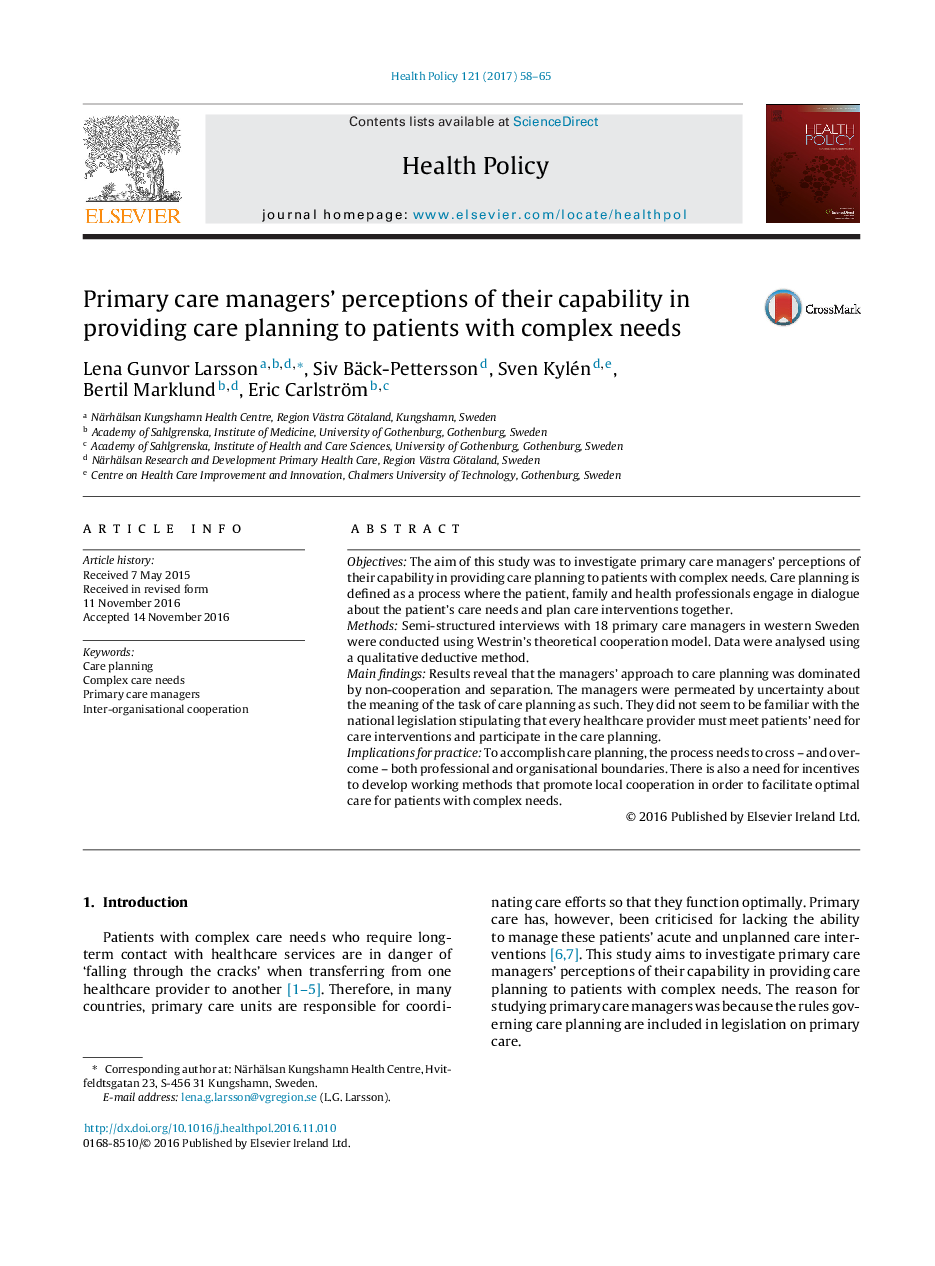| Article ID | Journal | Published Year | Pages | File Type |
|---|---|---|---|---|
| 5723340 | Health Policy | 2017 | 8 Pages |
â¢Care planning is a process where patient's needs and interventions are determined.â¢Managers' perception of care planning was dominated by non-cooperation and separation.â¢Care planning was not a priority for actors in primary care.
ObjectivesThe aim of this study was to investigate primary care managers' perceptions of their capability in providing care planning to patients with complex needs. Care planning is defined as a process where the patient, family and health professionals engage in dialogue about the patient's care needs and plan care interventions together.MethodsSemi-structured interviews with 18 primary care managers in western Sweden were conducted using Westrin's theoretical cooperation model. Data were analysed using a qualitative deductive method.Main findingsResults reveal that the managers' approach to care planning was dominated by non-cooperation and separation. The managers were permeated by uncertainty about the meaning of the task of care planning as such. They did not seem to be familiar with the national legislation stipulating that every healthcare provider must meet patients' need for care interventions and participate in the care planning.Implications for practiceTo accomplish care planning, the process needs to cross - and overcome - both professional and organisational boundaries. There is also a need for incentives to develop working methods that promote local cooperation in order to facilitate optimal care for patients with complex needs.
